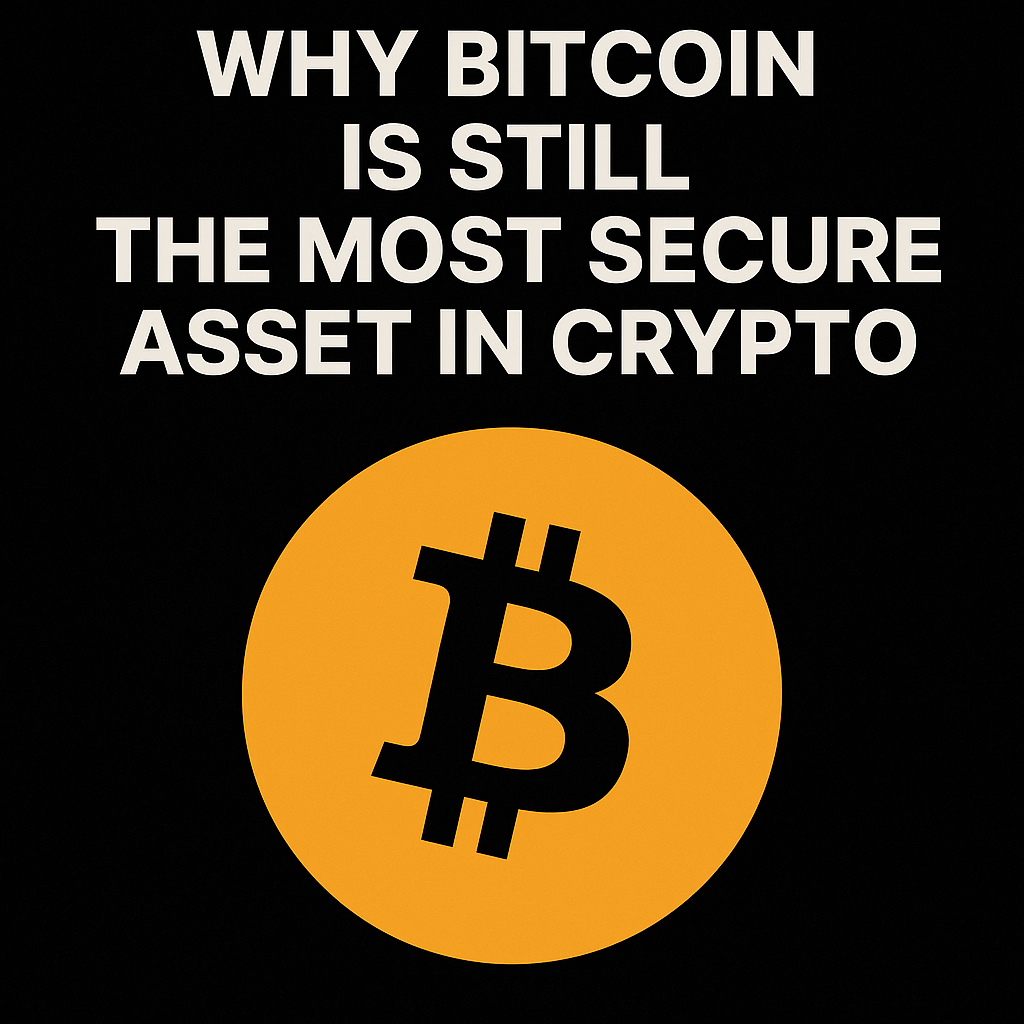
Why Bitcoin Is Still the Most Secure Asset in Crypto
Share
Bitcoin Is Not Just the First — It’s the Backbone of Personal Sovereignty
There’s no shortage of articles explaining why Bitcoin is “the best.” But in 2025, the question is no longer which coin will perform best—it’s which one will still work if the system fails.
Bitcoin isn’t hype. It’s insurance. It’s not just an asset class. It’s a rescue boat from the old economy—and it’s the only crypto asset that was built from day one to survive blackouts, banking collapses, and human error.
Bitcoin is Sovereign by Design
No founder. No corporate office. No centralized control. Bitcoin is maintained by a decentralized network of miners and nodes, all verifying transactions independently.
And most importantly, its monetary policy is fixed: 21 million coins, ever. No inflation levers. No last-minute patches. No centralized forks.
But Here’s What Really Matters: Can You Access It During Crisis?
Let’s be honest—most people aren’t ready for a blackout, a war zone, or an internet shutdown. If your crypto is stuck behind 2FA, app logins, or cloud-stored passwords, it’s not sovereignty—it’s an illusion.
So, what makes Bitcoin different?
- You can store your seed phrase offline.
- You can recover access to your wallet with no internet, no ID, and no third party—just your 12 or 24 words.
- You can broadcast transactions over radio, mesh networks, even satellite (with services like Blockstream).
That’s real decentralization. And that’s why Bitcoin is still the strongest foundation for a sovereign life.
What to Do if You Lose Your Phone, Ledger, or Flee with Nothing?
This is where most people panic. But with Bitcoin, recovery is possible—as long as you’ve prepared.
Step-by-step Emergency Readiness:
- Write down your seed phrase. Never store it on a phone or online device.
- Store it in at least two geographically separate places (vault + trusted relative, or metal capsule + remote safe).
- Test your recovery using a different device (spare Ledger, Trezor, or open-source wallet like BlueWallet or Sparrow).
- For multi-signature setups: ensure you know which wallets, how many signatures, and who controls them.
If you ever have to leave your country or escape a disaster with only your memory, 12 words can be everything. Try saying that about your bank, your government ID, or your ETH locked in DeFi contracts.
But What About Other Coins?
You can interact with Ethereum, stablecoins, or altcoins—but treat them like tools, not foundations.
Recommended Setup:
- Use a Bitcoin-only wallet (e.g., Ledger with Bitcoin firmware or Coldcard) for long-term storage.
- Use a secondary device or hot wallet (like Metamask or Rabby) for trading or exploring other ecosystems.
- Keep your identity, recovery, and serious assets off-chain and offline where possible.
This approach allows you to participate in the crypto economy while protecting your sovereignty.
Astrology Confirms the Timing (for Those Who Listen)
We're entering the Fire & Air cycle: Uranus into Gemini, Saturn into Aries, Pluto in Aquarius. The message is clear—decentralize your mind, mobilize your identity, and stop depending on decaying structures to secure your life.
Bitcoin is the fire. Your brain is the air. Together, that’s all you need to stay free in this new era.
Conclusion: Prepare Now, Not Later
Bitcoin won’t protect you if you don’t protect yourself.
Get your keys out of exchanges. Get your recovery setup tested. And get mentally prepared for a world where the only thing you control—is what you truly own.
Bitcoin is not just digital gold. It’s a mirror of your readiness.




